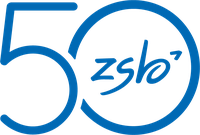Early Childhood Education (B.A.)
Taught in German
Overview
- Overview
-
Contents
The bachelor's degree course Early Childhood Education offers a first, broad occupational qualification for fields of activity in early childhood education.
During the degree course the students are imparted an understanding of the child with its individual knowledge and talent but also the dangers and the limitations it faces in its development. The students acquire skills which enable them to apply modern pedagogical and didactic approaches to early childhood education and to develop them.
In the areas of organisational development, further learning and evaluation, students will be in a position to take appropriate steps to improve the pedagogical quality of learning processes and institutional conditions.
-
Number of enrolled students
441 students are enrolled in this bachelor degree course (as of winter semester 2017/18).
Accreditation
since 22 August 2006.
Composition of the Study Programme
- Degree BA
-
Degree
Bachelor of Arts (BA)
- Duration of studies 6 Semester 180 Credit Points (CP)
-
Duration of Studies
6 Semesters - 180 Credit Points (CP)
- Composition of the Study Programme
-
Composition of degree programme
The course of study comprises 15 modules, including the thesis module plus modules in the reference area. The modules are divided into a core area, a specialisation area, empirical research methods and an ancillary area. Students also acquire interdisciplinary skills in the course of the studies, complete practical trainings (professionalisation) and write a Bachelor's thesis.
The core area
Contains two modules of the general educational sciences, in which the basics of educational theory and research are imparted.
The specialisation area
forms the subject-specific specialisation in the areas of early childhood education. The curricula of this area focuses on essential competencies and contents which are necessary for a profound academic understanding of spheres of activity in early childhood education.
The following modules are compulsory:- "Development and Heterogeneity in Childhood"
- "Institutional Conditions for School and Pre-School Education"
- "Fundamentals of Special Needs Education Focus Areas"
- "Diagnostics and Intervention"
- "Formative Processes among Children and Family Education"
- "Law, Quality- and Social Management"
- "Fundamentals, Diagnostics and Intervention in Case of Speech Disorder"
- "Psychosocial Medicine"
The education in research methodology
Comprises two more modules. The broad methodological training deals with the introduction to qualitative as well as quantitative research methods.
The three practical trainings in professional areas
Three practical trainings in professional areas - 100 practice days all in all - and corresponding accompanying events strongly connect theory and practice in the form of a professionalisation module during the training programme.
The ancillary area
In the ancillary area electives are on offer. Here students can set their focus on aspects and additional elements from a range of other subjects. The ancillary subjects form a "modular construction system" which can be combined. In some subjects there is only one module. In others there is a basic module and a topic module.
The following subjects are available as ancillary subjects:
- Protestant Theology,
- Psychology,
- Sociology/Political Sciences (Social Sciences),
- Business Administration,
- Art Education,
- Musical Education and
- Sport Pedagogy.
Furthermore, extradisciplinary skills are gained throughout the course.
Dissertation module
The degree course ends with the Bachelor's thesis which proves that students are able to work scientifically and independently on a complex problem from the field of early childhood education within a set time limit.
Application
- Commencement of Studies in the Winter Semester
-
Commencement of studies
Only possible in the winter semester
- Entrance Requirements Abitur ohne Praktikumsnachweis
-
Entrance requirements
- Applicants must have an Abitur (German school leaver's examination for university entrance) or equivalent. More on this...
- Certification of a pre-professional practical period is not required.
-
Special regulations apply to foreign applicants or those who gained their university-entrance qualifications abroad. Read more...
- Application
-
No GPA (NC) requirements apply to this degree programme.
Start of application period for the winter semester 2024/25:• 01.06.2024
Deadline for the winter semester 2024/25• 01.09.2024 for applicants with a german university entrance qualification
• 15.08.2024 for applicants with a foreign university entrance qualification
Special regulations apply to foreign applicants or those who gained their university-entrance qualifications abroad. Read more....
Career Options
- Career Options
-
Options for further study at JLU
After the end of the Bachelor's degree a continuation and specialization in the
- Master of Arts "Elementary and Integrative Education".
Career options / Job market
Graduates are working in all areas where children are looked after, are educated and brought up outside the family. According to the subject profile and the personal profile possible occupational areas are:
- Day nurseries,
- daycare centers,
- preschools (to a limited extent),
- after school care centers,
- all-day care in schools,
- healthcare homes,
- mother-child health spa business,
- paediatric wards in hospitals,
- children's homes,
- children's villages,
- early intervention facilities,
- child and youth services,
- intensive educational measures,
- language support,
- special facilities such as childrend's homes.
Many of the former graduates are working in day nurseries and daycare centers which are currently highly requested. With their Bachelor degree graduates have the job title of childhood educator.
Further Information
- Further Information: Documents
-
PDF documents for the courses of study
- Flyer (in German)
- Study guide (in German)
Examination- and study regulations
- Special regulations
(with module descriptions and module plans)
(Please note that only the German version of the modules is offical and legally binding. The english Version is for informative purposes only.) - General study regulations for modular and multi-stage study programmes
Courses offered in the course catalogue
- Electronical course catalogue (in German)
- Links
- Bachelor's Degree Programmes of Faculty 03
-
- Vocational Education and Training
- Early Childhood Education
- Adult and Continuing Education, Extracurricular Education
- Art Education in the courses of study "History and Culture" as well as "Language, Literature, Culture"
- Music
(also possible as subject of study in "History and Culture" as well as "Language, Literature, Culture") - Music Education
(also possible as subject of study in "History and Culture" as well as "Language, Literature, Culture") - Social Sciences
- International pages
-
Please have a look at our International Pages for more information in English.
- Any Questions
-

Any Questions?
Information- and advisory services of JLU can be found under the category “contact” on this page!
- Help
-
Do you need assistance in choosing the right courses of study?
- Offers: Courses of study
-
Which courses of study suits me best?

Ask Justus offers information for prospective students
Events for prospective students

There is a whole range of events offered by JLU, current events can be found under “news”:
www.uni-giessen.de/studium (in German)
Contact
- Contact
- Links
- Subject Advisors - Early Childhood Education (B.A.)
-
Sara Frese
Institute for Childhood and School Pedagogy
Department of Childhood Education
Philosophikum II, House B
Karl-Glöckner-Strasse 21
35394 GiessenOffice Hours: please register by writing a mail to:
Kindheitspaedagogik
- Central Study Advisor
- Natascha Kohrt (ZSB)
- Central Student Services
-
- Students office →
(for formal matters like matriculation) - Central student advisory office
(advice for students & prospective students) - Hotline Call Justus
(first contact for all matters pertaining to studies) - International office →
(for international students)
- Students office →

